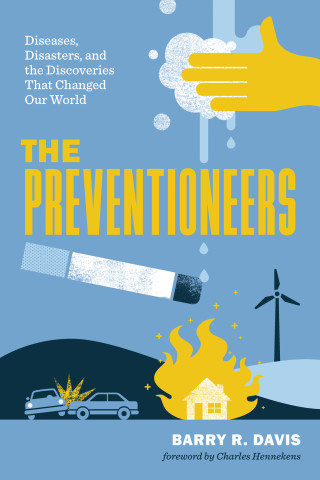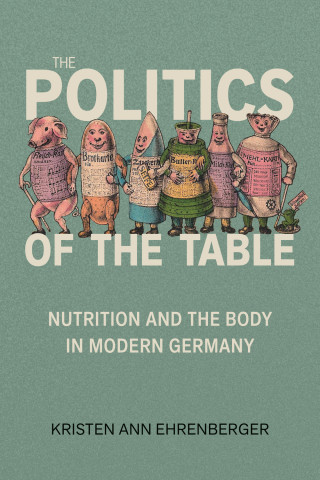
Reviews
Romanticism and Colonial Disease is an eloquent, powerful and major contribution to a flourishing area of research, a recovery (in the archival rather than the therapeutic sense) of an entire realm of culture: for example the chapters on colonial military disease narratives and John Ritchie's view of Africa. The eloquence of its elegant middle style alone should attract readers. This book will need to be on hand when anyone does work in its fields of study.
Bewell has rediscovered a vital dimension to our understanding of the Romantic period. No scholar of the period should leave his book unread.
Alan Bewell has written one of the most important and original assessments of Romanticism to have appeared for many a long year. Romanticism and Colonial Disease is new historicism at its best. Packed with detailed and original research, it refocuses the Romantic movement in a completely unexpected way, demanding that we rethink the literature with which we thought we were familiar. But it does more than this, it also changes our understanding of British culture in the late eighteenth and early nineteenth century and redefines our understanding of colonialism.
Bewell offers romanticists a new orientation rich with exciting possibilities. He opens the way to an understanding of colonialism not as a uni-directional action but, instead, as a dark commonality of dynamically reciprocal interactions within a process of accelerating globalization.
Romanticism and Colonial Disease is certainly one of the most significant works of Romantic criticism to appear in recent years. It presents us with a more complex and interesting body of work, and Bewell adds a new dimension to the colonial and historical context of Romantic literature, demonstrating ideas and strategies in Romantic writings that we simply have not hitherto noticed. This is an authoritative and scholarly account of an aspect of colonial history and literature that we will in future have to recognize in our continuing understanding of the period and its writing.
In this extraordinarily important, exhaustively documented book, Alan Bewell for the first time tracks the emergence in Britain between 1780 and 1848 of an understanding of the fundamental conjunction of colonial expansion with epidemic disease, both in the colonies themselves and, more anxiety-provoking, at home in England... After reading Romanticism and Colonial Disease, we will no longer be able to ignore the ways in which disease infected both the bodies of numerous British Romantic writers—Bewell details the actual diseases endured by Coleridge, Keats, Percy Shelley, Thomas Medwin, Matthew Lewis, and a host of other writers during the period—and, more significantly, the cultural imagination of the Romantic period.
Bewell's book is an example of the best of interdisciplinary scholarship, a treatise on the history of medicine, medical geography, English literature, and colonial diseases. I recommend it for a wide readership, and plan on using it in my own graduate seminars. As evidenced most in the final pages, Bewell's book should be applauded for its ultimately political statement on the profoundly social causes of disease in the nineteenth century as well as today.
Romanticism and Colonial Disease is a superb book and indispensable to anyone seeking to understand either Romanticism or the medical aspects of colonial expansion.
Bewell's great achievement is to have shown us just how heavily colonial disease weighted upon the social conditions and the literary production of romantic period Britain. In accomplishing that monumental task he has set a new standard of excellence for the study of romanticism in the context of colonialism.
This is an important and an exciting contribution to the growing literature on colonialism and medicine.
There are quite simply no existing books on the subject of Romantic literature, imperialism, and disease. Future studies on this period, whether literary, medical, linguistic, cultural, political, psychological, or economic will have to reckon with the intellectual range of this book.
Romanticism and Colonial Disease is a work that speaks directly to many current areas of scholarly debate—in British and imperial history, in the history of medicine, in literary and post-colonial studies. It should inspire a critical reconsideration as much of the relationship between literary imagination and historical experience as between disease and empire.
A strikingly original and exhaustively-documented study of British romanticism in relation to the global epidemiological crisis prompted by European imperialism. Alan Bewell's book represents a breakthrough in understanding the nexus connecting literature, colonialism, and medicine in romantic culture.
Book Details
List of Illustrations
Preface
Introduction: Colonialism and Disease
Chapter 1. Romantic Medical Geography: Empire, Disease, and the Construction of Pathogenic Environments
Chapter 2. "Voices of Dead
List of Illustrations
Preface
Introduction: Colonialism and Disease
Chapter 1. Romantic Medical Geography: Empire, Disease, and the Construction of Pathogenic Environments
Chapter 2. "Voices of Dead Complaint": Colonial Military Disease Narratives
Chapter 3. Colonial Dietary Anxieties
Chapter 4. Keats and the Geography of Consumption
Chapter 5. Joseph Ritchie and "The Diseased Heart of Africa"
Chapter 6. Percy Bysshe Shelley and Revolutionary Climatology
Chapter 7. Cholera, Sanitation, and the Colonial Representation of India
Chapter 8. Tropical Invalids
Chapter 9. "All the World Has the Plague": Mary Shelley's The Last Man
Notes
Works Cited
Index






